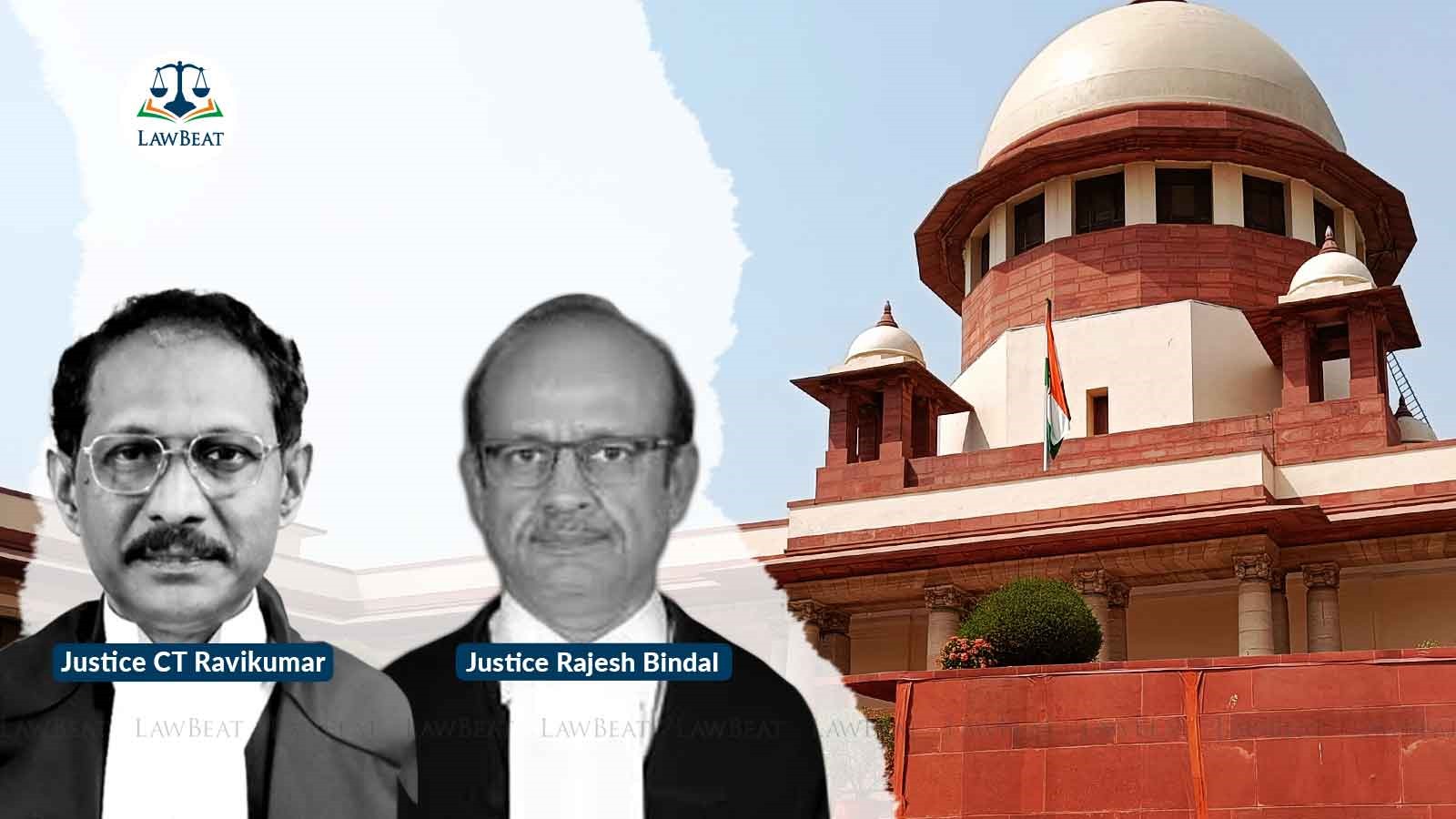'Contradictory claims': SC quashes case lodged against man for rape on false promise of marriage

The Supreme Court opined the High Court should have exercised its inherent power in the case to quash the FIR
The Supreme Court recently quashed a case lodged against a man for rape on false promise of marriage, noting that there was a huge irregularity between the statements of the complainant that the accused 'established physical relationship with her without her consent' and 'started living with her as her husband'.
A bench of Justices C T Ravikumar and Rajesh Bindal set aside the Allahabad High Court's 2018 order which declined to quash the FIR lodged against appellant Lalu Yadav in 2018 in Ghazipur district.
"The case at hand is a befitting case where the High Court should have exercised the power available under Section 482, CrPC to prevent abuse of the process of the court," the bench said.
Yadav had filed a writ petition under Article 226 of the Constitution before the high court seeking direction to quash the FIR dated February 21, 2018, registered against him under Sections 376 and 313 of the Indian Penal Code, at Police Station Nandganj in Ghazipur District.
Referring to a decision of the Supreme Court in Pepsi Foods Ltd Vs Special Judicial Magistrate (1998), the bench pointed out that it was held that the High Court can exercise its power of judicial review in criminal matters and it can exercise the power either under Article 226 of the Constitution or under Section 482 of the Code of Criminal Procedure, 1973 to prevent the abuse of process of the court or otherwise to secure the ends of justice.
Nomenclature under which a petition is filed is not quite relevant. If the court finds that the petitioner could not invoke the jurisdiction of the Court under Article 226, it may treat the petition under Section 482, CrPC, the bench pointed out.
In the instant case, the bench said that the facts were that the time of occurrence of offence was allegedly from January 05, 2013 to January 05, 2018 and but the FIR was registered only at 21.34 hrs on February 21, 2018.
That apart, it is evident that even going by the statement of the complainant herself, she and the appellant were living as husband and wife. However, the complaint is that the appellant had deceived the complainant by promising to marry and then by establishing physical relationship, it pointed out.
The top court also took note of the fact that though there was an allegation in the FIR regarding commission of offence under Section 313, IPC, on completion of the investigation, the investigating agency itself omitted the offence under Section 313, IPC against the appellant-accused.
"We are of the considered view that the High Court has palpably gone wrong in not considering the question whether the allegations in the complaint reveals prima facie case that the complainant had given her consent for the sexual relationship with the appellant under misconception of fact, as alleged, or whether it reveals a case of consensual sex," the bench said.
The court pointed out that firstly, it is to be noted that the subject FIR itself would reveal that there occurred a delay of more than 5 years for registering the FIR.
"Secondly, the very case of the complainant, as revealed from the FIR, would go to show that they lived for a long period as man and wife and thirdly, the facts and circumstances obtained from the subject FIR and other materials on record would reveal absence of a prima facie case that the complainant had given her consent for sexual relationship with the appellant under misconception of fact," the bench added.
At any rate, the allegations in the FIR would not constitute a prima facie case of false promise to marry from the inception with a view to establish a sexual relationship and instead they would reveal a prima facie case of long consensual physical relationship, during which the complainant addressed the appellant as her husband, the court said.
Moreover, the court noted that it was also the case of the complainant, revealed from the subject FIR and the other materials on record, that she went along with the appellant to Varanasi with the knowledge of her family and stayed with him in hotels during such visits.
"The subsequent refusal to marry the complainant would not be sufficient, in view of the facts and circumstances obtained in the case at hand, by any stretch of imagination to draw existence of a prima facie case that the complainant had given consent for the sexual relationship with the appellant under misconception of fact, so as to accuse the appellant guilty of having committed rape within the meaning of Section 375, IPC," the bench held.
Case Title: Lalu Yadav Vs The State of Uttar Pradesh & Ors
